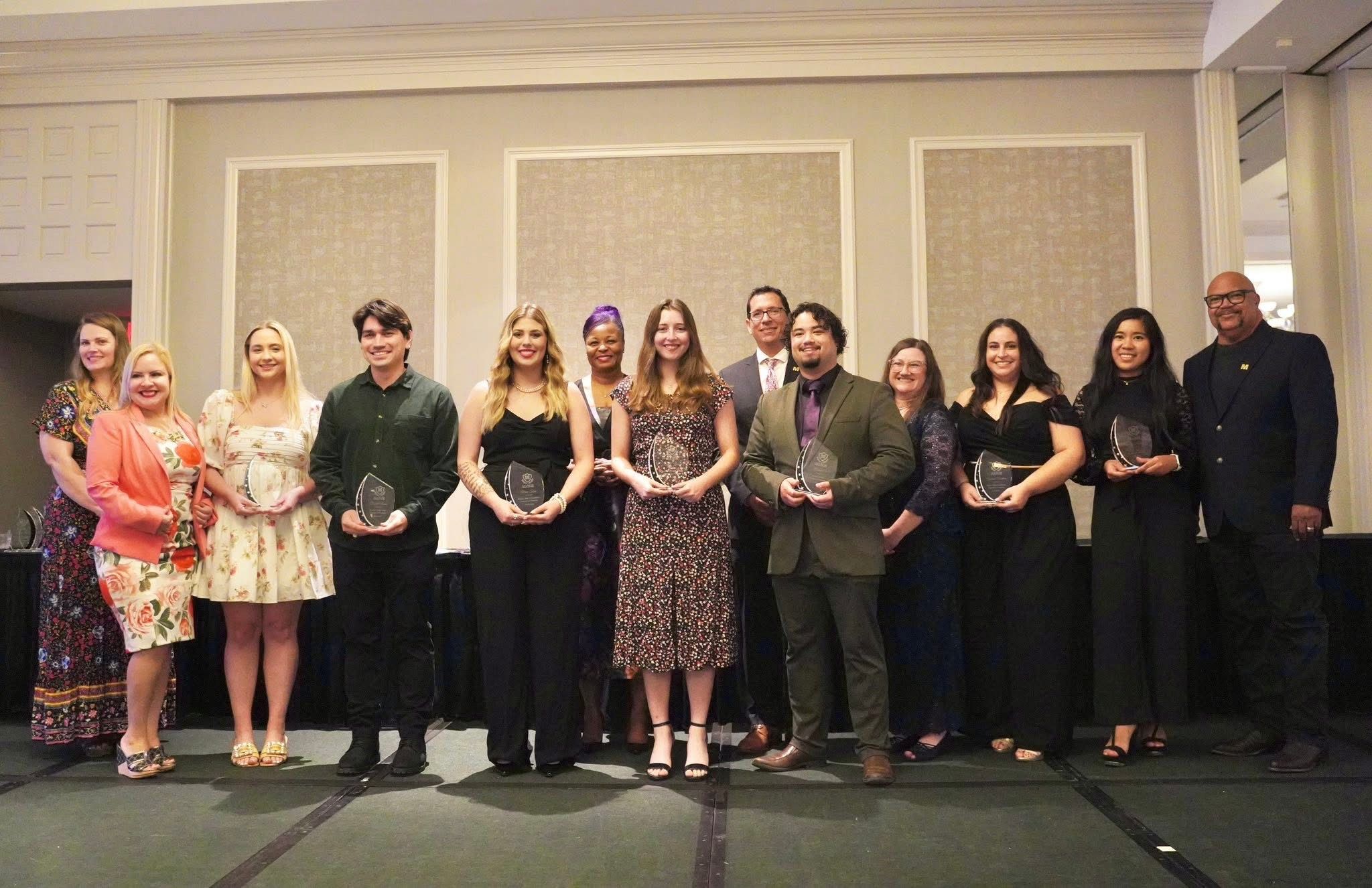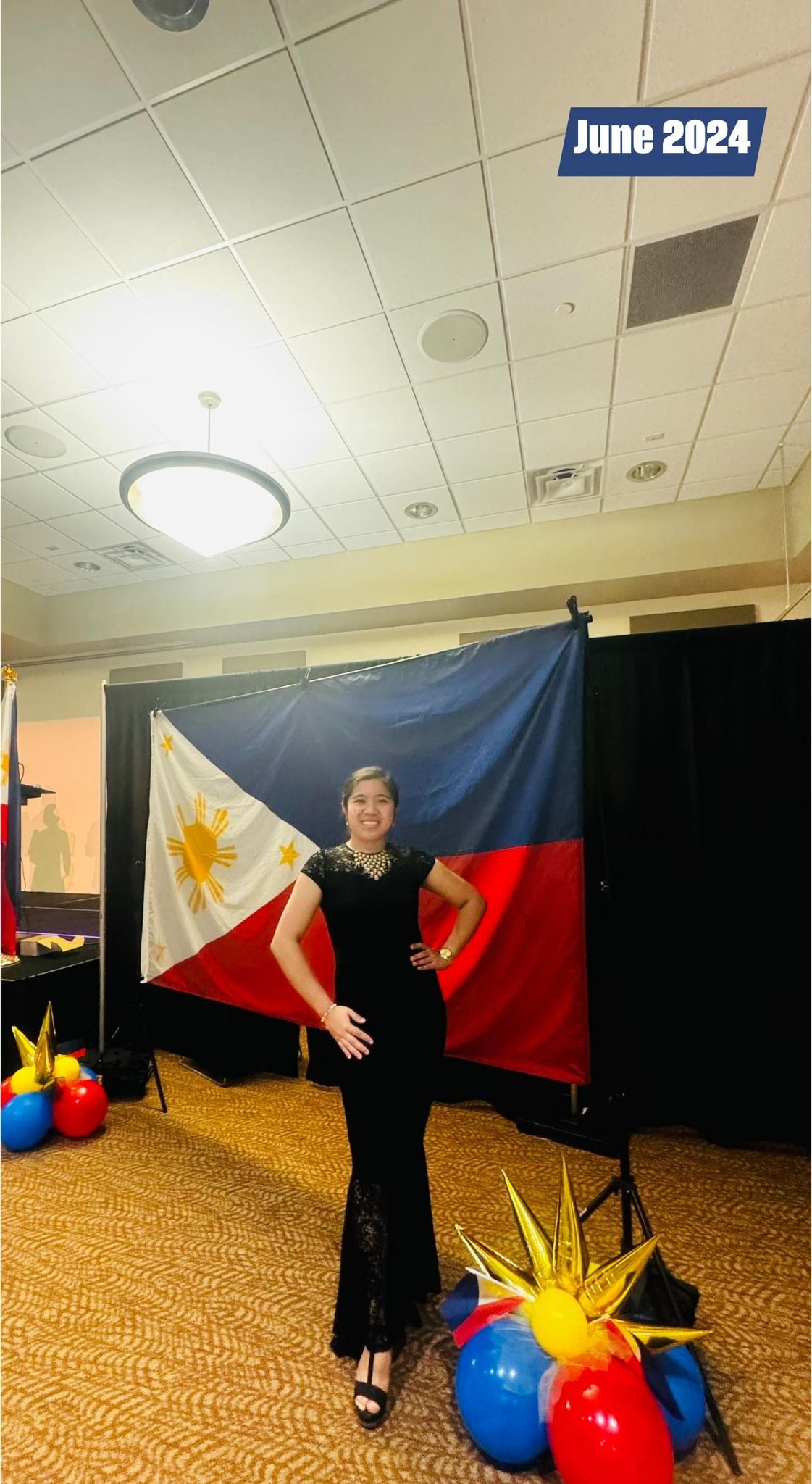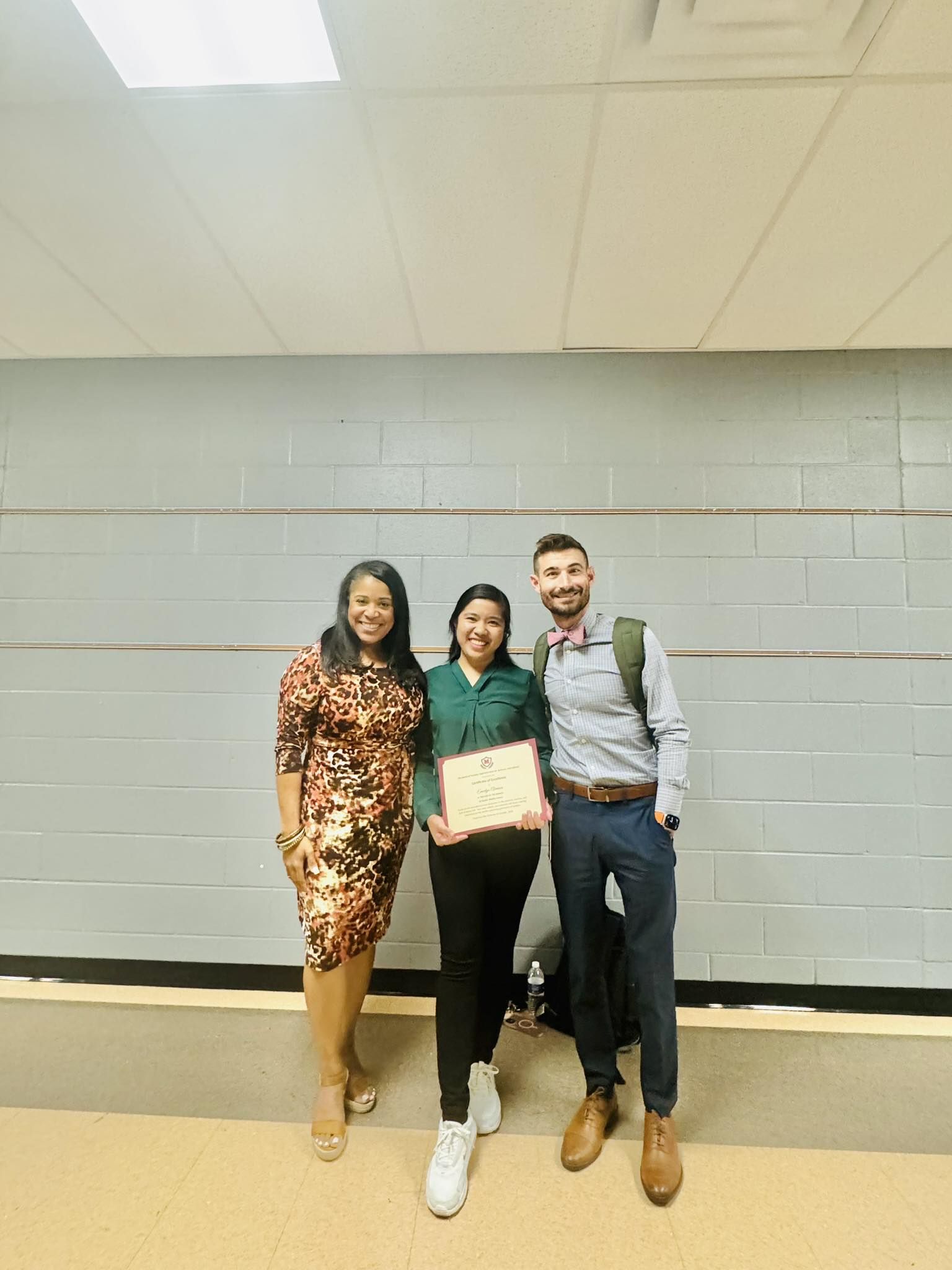
Image | Facebook
For her students, math is no longer just an academic requirement. It has become a test of resilience, teamwork, and confidence. For Abrenica, it is proof that when students are guided with research-based strategies and encouragement, they can achieve more than they ever expected.
Professional Recognition
There have been several significant milestones in Abrenica’s career. She was recognized as Teacher of the Month in the fall of 2024, an honor highlighting her commitment to student success and teaching excellence. She also led her UIL coaching teams to strong performances in Mathematics and Number Sense, bringing recognition to her campus and boosting student pride.
Her impact has been acknowledged beyond her campus. She earned the Teacher Leader Impact Award from Edthena in 2025, a national honor given to a select group of educators shaping professional learning across the country. Internationally, she received the Outstanding Educator of the Year Award at the Instabright International Conference in Singapore, affirming her global influence.
“These awards demonstrate not only her teaching excellence, but also her sustained contributions to the profession at large,” said Blake Rhyne, former Principal at Manor ISD. “She is truly among the most impactful educators I have worked with.”
A Career Built on Research and Practice
Abrenica’s teaching career began in the Philippines, where she worked with middle and senior high school students. The move to the United States required adapting to new curricula and diverse student needs, deepening her understanding of how culture shapes learning.
In 2024, her thesis, Social Persuasion: A Strategy in Optimizing Students’ Self-Efficacy and Mathematics Performance, demonstrated how confidence in mathematics can be measurably improved through structured feedback, goal-setting, and targeted encouragement. The study, later published in Randwick International of Education and Linguistics Science (RIELS) Journal, expanded access to her findings for a global audience of educators.

Her work aligns with Bandura’s (1997) foundational theory of self-efficacy, which emphasizes the role of encouragement and feedback in shaping performance. “At the core of my professional journey is a deep commitment to empowering students through education, particularly in mathematics,” Abrenica explains.
“Her approach is rooted in data,” adds Rhyne, former Principal of Decker Middle School. “She doesn’t just monitor performance; she uses analytics to identify gaps, design interventions, and coach teachers. That level of leadership is rare.”
From Competition to Confidence
One of the most visible ways Abrenica applies her research is through University Interscholastic League (UIL) competitions. In Texas, UIL events are high-profile academic tournaments that provide students with the opportunity to test their skills against peers across the state. Abrenica coaches’ teams participate in Mathematics and Number Sense, two of the most demanding categories.
“Her after-school practices follow a clear structure: timed drills to build fluency, group review sessions where students present solutions, and reflection exercises to track progress. The approach turns competition into an extension of the classroom. Students who once hesitated to raise their hands begin to thrive under the pressure of the stopwatch”, says Rhyne.
The results are visible. Her UIL teams earned recognition during the 2024 season, but the bigger success was the way students carried their new confidence back into their daily lessons.
Why Her Work Matters Now

“Schoolboy writing in a copybook in a classroom.” – Image | Pexels
The urgency of Abrenica’s work becomes clearer when viewed against national trends. In 2023, the NAEP Long-Term Trend assessment, administered by the National Center for Education Statistics, showed that math scores for 13-year-olds dropped by 9 points compared to the 2019–20 assessment, the most significant such decline on record. Scores also fell 14 points compared to a decade earlier.
This dual challenge, lower performance and lower confidence, has left schools searching for solutions. Abrenica’s work offers one. By treating self-efficacy as something teachers can deliberately cultivate, she demonstrates that progress is possible even in challenging contexts.
Her methods align with the National Council of Teachers of Mathematics framework, which emphasizes the importance of explicit goal-setting, student-centered discourse, and the regular use of formative feedback. In other words, her UIL coaching and research-based classroom practices are not separate initiatives; they are mutually reinforcing strategies.
Lessons for Educators and Leaders
Abrenica’s story carries direct implications for teachers facing similar challenges.
- Build self-efficacy in daily lessons: Simple phrases that name what a student did well can reshape confidence. Setting small, achievable goals reinforces progress.
- Use extracurricular math as a bridge: UIL practices provide structure for fluency, collaboration, and resilience. Even informal clubs can replicate this model.
- Lead through small routines: Abrenica runs quick data huddles with her team and shares strategies in short lunch-and-learn sessions. These micro-leadership acts build a culture of improvement without overwhelming staff.
As Darling-Hammond et al. (2017) note, instructional leaders who blend research, mentorship, and data-driven strategies produce measurable improvements in student outcomes — a description that mirrors Abrenica’s work.
A Cross-Cultural Perspective

“Emerlyn Abrenica standing in front of a Filipino flag.” – Image | Facebook
Abrenica’s career has been shaped by teaching across borders. In the Philippines, she taught senior high school and middle school students, experiences that gave her insight into how varied student backgrounds affect learning. In Texas, her role as department head requires her to mentor fellow teachers, coordinate curriculum planning, and lead improvement strategies, all while teaching a full classroom load.
According to Tara Hinton, Assistant Principal at Decker Middle School, “What sets Ms. Abrenica apart is her cross-cultural teaching experience, from the Philippines to Texas, which has broadened her perspective and enriched her ability to connect with diverse learners and educators.”
That perspective has practical value. In diverse classrooms, she adapts examples and references to students’ cultural contexts. In team meetings, she draws on international networks of educators. This ability to bridge contexts positions her as both a local leader and a global participant in mathematics education.
The Bigger Picture
Her professional associations, membership in the Texas Council of Teachers of Mathematics and the National Council of Teachers of Mathematics, connect her classroom to broader policy and research conversations. Her certifications in Texas, New Mexico, and Illinois reflect her readiness to teach and lead in multiple states.

Looking ahead, Abrenica envisions scaling her leadership by mentoring new educators, shaping district-level curriculum, and advocating for equity in mathematics instruction. “Emerlyn’s cross-cultural expertise and research-based strategies make her a transformational leader in the field of mathematics education,” Rhyne affirms.
What Educators Can Learn
Awards may spotlight individuals, but in Abrenica’s case, they also highlight a practical shift in math education. Confidence is not an abstract trait; it can be taught, reinforced, and measured. Competitions are not distractions but extensions of learning. Leadership is not a title but a set of daily practices that ripple outward.
For educators looking to navigate declining perfo3rmance and student anxiety, her career offers a roadmap. For students at Decker Middle School, it provides proof that math is not something to fear, but a challenge worth embracing.
References
- Bandura, A. (1997). Self-Efficacy: The Exercise of Control. New York: W.H. Freeman.
- Darling-Hammond, L., Hyler, M., & Gardner, M. (2017). Effective Teacher Professional Development. Palo Alto, CA: Learning Policy Institute.
- National Council of Teachers of Mathematics (NCTM). (2014). Principles to Actions: Ensuring Mathematical Success for All. Reston, VA: NCTM.
- National Center for Education Statistics (NCES). (2023). NAEP Long-Term Trend Assessment Results: Mathematics and Reading 2023. Washington, DC: U.S. Department of Education.
About the Author:
Sofia Delgado is an education journalist and policy analyst whose work has appeared in international outlets covering teaching, leadership, and student achievement. With over a decade of reporting experience, she specializes in documenting innovative practices in K–12 and higher education, particularly at the intersection of instructional leadership and equity. Her features often highlight educators whose research-driven approaches shape policy and practice across borders.







